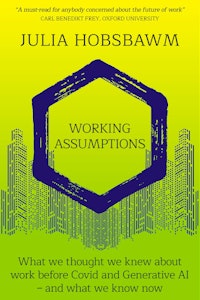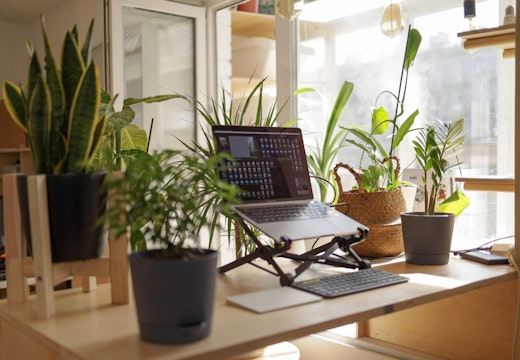The United State of Work: nobody is immune from turbulence
Differences are narrowing as the global workforce faces up to common challenges, says author Julia Hobsbawm. But in creating a uniform agenda, are we in danger of encouraging groupthink?
As economic headwinds, geopolitical shocks and technological disruption continue to pose an existential threat to the workplace, there appear to be few consolations on the horizon for the job market.
But according to author and Bloomberg commentator Julia Hobsbawm, at least these challenges are being faced by every organisation irrespective of size and scale, and by every individual irrespective of role, class and education. For once, the old adage that ‘we’re all in it together’ might be coming true.
In her new book Working Assumptions, Julia Hobsbawm talks of ‘the United State of Work’ in which ‘the global workforce is more united than at any point in its history. Common challenges render differences narrower than at any point in the last century.’
Her point is that all jobs are experiencing turbulence, not just the repetitive data-entry ones that AI might automate but the knowledge worker roles too. And she uses the title of a popular 2022 film to describe the phenomenon: ‘Everything Everywhere All at Once’.
A shared agenda
Participating at conferences and roundtables in different cities and different sectors over the past year, I’ve been struck by how company leaders appear to share a global agenda in navigating the workplace. The same themes and the same threats crop up again and again – from sustainability and space management to absorbing the impact of AI and improving the employee experience. This is despite regional and local variances.
When WORKTECH Academy surveyed the state of office real estate in six world cities for our Q1 2024 Trend Report for members, we discovered that the things New York, London, Buenos Aires, Madrid, Sydney and Tokyo had in common were greater than the factors that made them different.
Some of this ‘united state’ might be due to the multinational operations of larger firms. It can also be put down to the way in which new technologies and social attitudes accelerate nowadays across both geographic and industry boundaries. But should this narrowing of workplace differences be a cause for celebration, or a cause for concern? In creating a global crib sheet for the future workplace, are we in danger of encouraging groupthink?
A wider experience
Take the task of improving employee experience as an example. Most events I attend discuss the need for new and better experiences to be a lever to bring people back to the office and remain loyal to their employer. This inward focus on the workplace is complete and self-serving. However, a different, more outward-facing perspective might frame improving employee experience more as a gateway to improving the service that employees give to customers.
Indeed, there is plenty of evidence to suggest that engaged employees create better customer experiences – a paper by Denise Lee Yohn in the Harvard Business Review (April 2023) quotes a study by PwC which reports that companies delivering superior experiences to both employees and consumers are able to charge a premium of as much as 16 per cent for their products and services.
‘It is different thinking of this kind that will enable company leaders to tailor strategies to suit specific needs’
The Harvard paper also looks at ways to run the employee and customer experience on parallel tracks within the company, by integrating customer and employee journey maps to identify and diagnose customer problems for example. It is different thinking of this kind that will enable company leaders to tailor strategies to suit the specific needs of their own organisation – and not simply follow the herd as common global challenges press in.
 ‘United State of Work’ may be a good umbrella term to describe the shared threats we all face. But it won’t keep the rain out unless companies follow their own lead and make their own weather.
‘United State of Work’ may be a good umbrella term to describe the shared threats we all face. But it won’t keep the rain out unless companies follow their own lead and make their own weather.
Julia Hobsbawm’s Working Assumptions: What we thought we knew about work before Covid and Generative AI – and what we know now is published by Whitefox Publishing (2024).
Julia Hobsbawm was interviewed live onstage by Jeremy Myerson at WORKTECH’s Unworking conference, London, in June 2024. She will be speaking at the WORKTECH New York conference on 7 October 2024.








